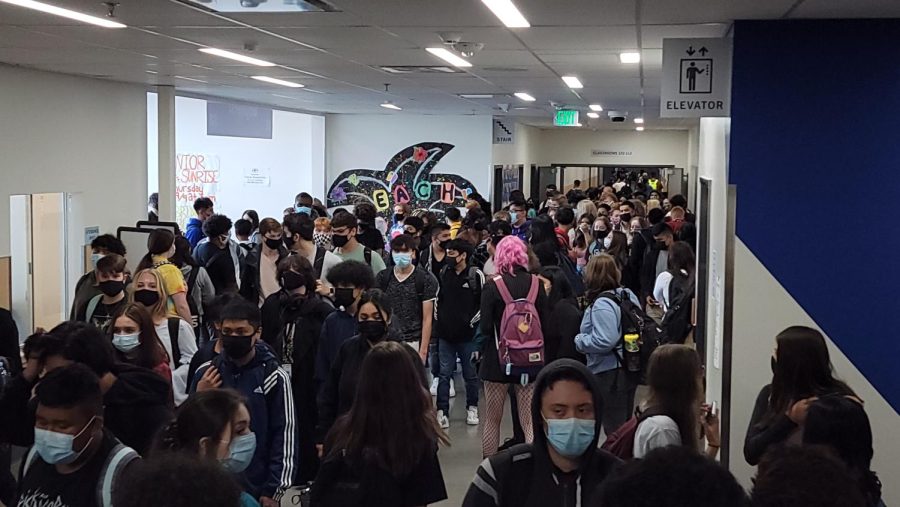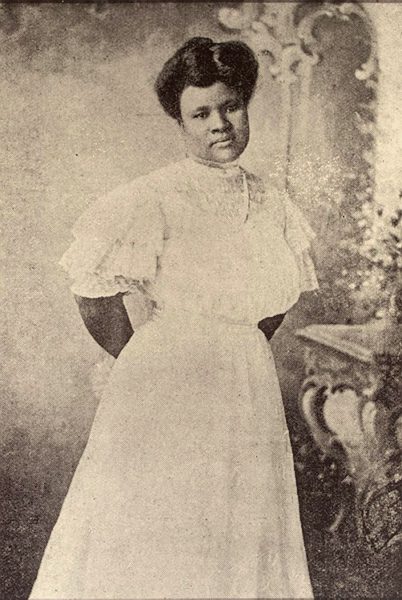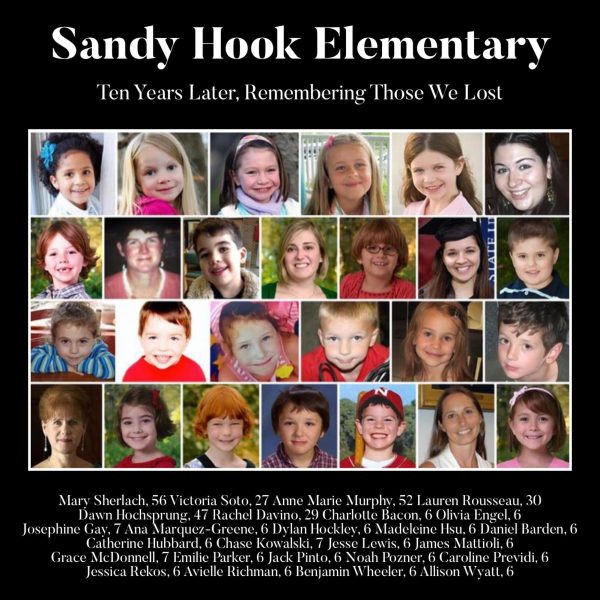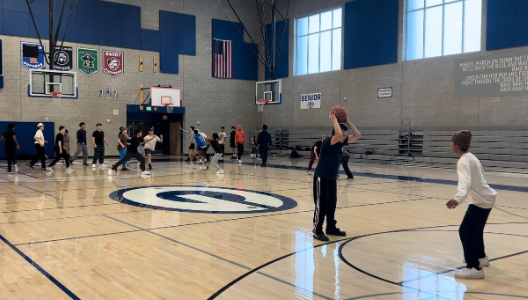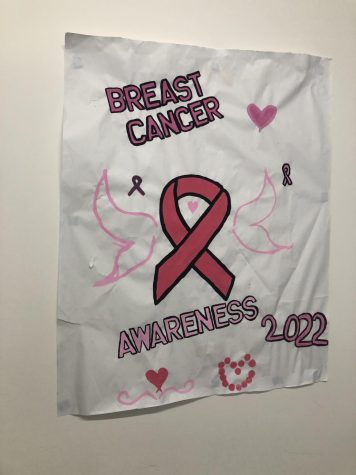A Year of Adversity Comes to a Close
Students arriving to a crowded hallway.
June 8, 2022
With track races won, laughs shared, and school dances danced, the end of the 21-22 school year is approaching steadily, yet inevitably. Like actors bowing before a curtain’s close, this year’s seniors are set to wear their caps and graduate on June 14th at the Memorial Coliseum.
This year has been an interesting one for most, as the first full year back from online learning, as well as half a year without masks, both being major changes that have sparked mixed emotions of joy, but also fear and uncertainty.
As the year has progressed though, it’s become increasingly clear that COVID would not be the only adversity this year’s students would face.
Much like the spread of COVID, a year’s worth of bad habits such as silent, faceless classrooms coupled with electronic temptations and Google searches for easy answers has infected many students’ abilities to learn, as made apparent by the number of kids failing classes.
“I don’t know what’s going on or if they changed the curriculum, but there’s a lot of kids failing math this year in my classes. Even here I could pull up ten kids from our (track) roster and they’d be failing math,” Track & Field head coach Tim Mowery said.
Things worsen, as the number of students failing math becomes clearer and is expanded on by the counseling office.
“Over half of the kids, this year are failing math. If it makes you feel any better, it’s not just you,” counselor Kathryn Sayer said.
While it’s unclear what exactly has caused this math epidemic, it can be theorized that for many failures in math are more prevalent because it is a very technical class. Answers are usually rigid with only a few specific answers or even just a single one, and the processes required to solve complex problems often call on precise and perfect thought processes.
“A single mistake can throw off your entire problem. You have to be really careful when solving these problems, so let me show you an easier way to do this,” math teacher Michael O’Brien said.
Math isn’t the only issue though, it’s likely that the issues created by online learning last year stem to nearly all classes, affecting students to varying degrees, as well as the methods used to learn information in the first place such as the internet or word of mouth.
“I can’t say this enough, the past two generations have been taught to regurgitate information without demonstrating how to apply the concepts or skills we learn. If you can’t apply the concept, then it shows you don’t have a full understanding of it,” Yearbook & AP English teacher Safiyah Thorne said.
While Thorne was originally referring to applying concepts under the context of writing a rhetorical analysis, it’s hard to deny that there’s much truth to be had for student learning in Gresham as a whole, especially with concepts like TREE paragraphs in English.
“I really hated writing TREE paragraphs. It’s not that it’s hard, but writing them for nearly a year felt really repetitive. It made it harder to be creative, but I did get better once I joined CAL, which is boring, but at least I have more freedom on how to write and cite sources,” junior CAL student Logan Messer said.
The issue with student failure is a complicated one, with poor attendance a key part of the issue. Administration has heightened measures to encourage student attendance such as implementing a new policy that considers any tardiness over ten minutes in a class as an absence, and that tardy students no longer have to report to the front office window for a tardy slip.
“We literally were wasting so much paper on late kids with slips. I’m not even surprised that they changed it,” an anonymous office aide said.
While it’s uncertain how effective the policy’s been in raising attendance, the policy change has stirred some students’ minds to another issue directly related to sleep, performance, and attendance: starting times.
While not as heated as the mask mandates and SRO issues, the bell schedule start times are often still thought of as something to be improved.
“I think that Wednesday late starts are good, and that that schedule would be nice, I would like the start of the day to be moved one hour forward, but I don’t know how practical that is,” Messer said.
Despite student pleas, the school board is unlikely to enact any significant schedule changes next year.
“I’m not sure if we would be making a decision on the start times alone, changing the bell schedule, as we had pointed out has many consequences, that there are many models to adopt so we’re open. We haven’t landed any decisions yet, but we’re hoping we’ll be able to navigate through that this next fall, and if we do make a recommendation for a change, it’s going to get adopted in the 23-24 school year,” Superintendent James Hiu said.
